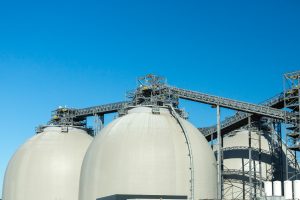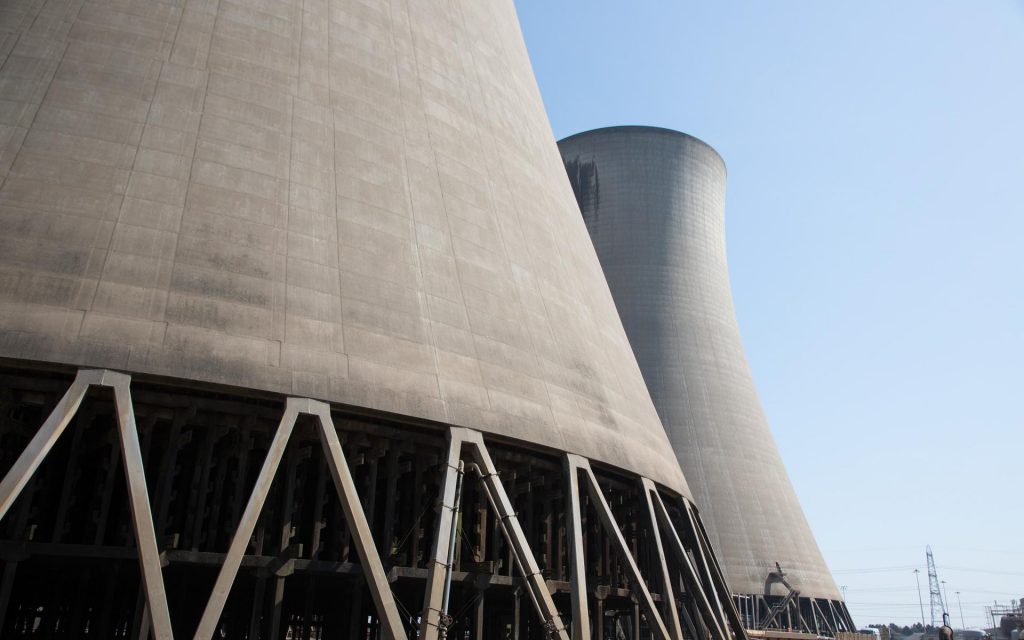- Drax welcomes Climate Change Committee report which argues for greater pace from the UK Government on delivering Net Zero targets and more progress on delivering carbon removals technology.
- The company has also confirmed that the decommissioning of its coal units at Drax Power Station (DPS) will continue and they will not be available this winter.
Drax Group (Drax), the renewable energy business, today welcomes the Climate Change Committee’s (CCC) report, Progress in Reducing UK Emissions – 2023, and its recommendation that if Government wants to deliver on its climate targets it must deliver specific policy which supports the development of carbon removals projects in this country.
In 2022, Drax provided around 11% of the UK’s renewable energy and it plays a vital role in maintaining the country’s energy security.
Drax’s ambition is to invest billions in carbon removal projects in the UK and the US through game-changing technology – bioenergy with carbon capture and storage (BECCS).
Drax Group CEO, Will Gardiner, said:
“The CCC’s report is welcome as it is a holistic view of the scale of the challenge facing us all in reaching Net Zero, as well as acknowledging the vital role that carbon removals technologies like BECCS will play in getting us there. We support its recommendation that faster progress is needed to reach the UK’s ambitious carbon removals targets.
“With the right support from the UK Government, we plan to invest billions into delivering BECCS at our power station in Yorkshire. Our formal discussions with the UK Government on BECCS deployment and parallel discussions about a ‘bridging mechanism’ to support the transition to BECCS have been productive and we are looking forward to continuing these in the coming months.
“We also await the publication of the UK Government’s biomass strategy, which we hope will reinforce the critical role that BECCS will play in energy security and decarbonisation, as well as timelines for the deployment of initial BECCS projects in the UK.”
The company has also confirmed today that the decommissioning of its two remaining coal units at Drax Power Station will continue and that they will not be available to generate power this winter.
This confirmation follows a recent request by National Grid ESO to explore the possibility of extending coal generation at Drax Power Station but concluded that due to a combination of technical, maintenance and staffing reasons, the extension of coal over this winter was not possible.
The company first announced in April this year that after almost 50 years of coal power generation at Drax Power Station, its coal units would close.
ENDS
Media contacts:
Chris Mostyn
Head of Media Relations
E: [email protected]
T: 07548 838 896
Andy Low
Media Manager
E: [email protected]
T: 07841 068 415
About Drax:
Drax Group’s purpose is to enable a zero carbon, lower cost energy future and in 2019 announced a world-leading ambition to be carbon negative by 2030, using bioenergy with carbon capture and storage (BECCS) technology.
Drax’s around 3,000 employees operate across three principal areas of activity – electricity generation, electricity sales to business customers and compressed wood pellet production and supply to third parties. For more information visit www.drax.com
Power generation:
Drax owns and operates a portfolio of renewable electricity generation assets in England and Scotland. The assets include the UK’s largest power station, based at Selby, North Yorkshire, which supplies five percent of the country’s electricity needs.
Having converted Drax Power Station to use sustainable biomass instead of coal it has become the UK’s biggest renewable power generator and the largest decarbonisation project in Europe. It is also where Drax is piloting the groundbreaking negative emissions technology BECCS within its CCUS (Carbon Capture Utilisation and Storage) Incubation Area.
Its pumped storage, hydro and energy from waste assets in Scotland include Cruachan Power Station – a flexible pumped storage facility within the hollowed-out mountain Ben Cruachan.
The Group also aims to build on its BECCS innovation at Drax Power Station with a target to deliver 4 million tonnes of negative CO2 emissions each year from new-build BECCS outside of the UK by 2030 and is currently developing models for North American and European markets.
Pellet production and supply:
The Group has 18 operational pellet plants and developments with nameplate production capacity of around 5 million tonnes a year.
Drax is targeting 8 million tonnes of production capacity by 2030, which will require the development of over 3 million tonnes of new biomass pellet production capacity. The pellets are produced using materials sourced from sustainably managed working forests and are supplied to third party customers in Europe and Asia for the generation of renewable power.
Drax’s pellet plants supply biomass used at its own power station in North Yorkshire, England to generate flexible, renewable power for the UK’s homes and businesses, and also to customers in Europe and Asia.
Customers:
Drax supplies renewable electricity to UK businesses, offering a range of energy-related services including energy optimisation, as well as electric vehicle strategy and management.
To find out more go to the website www.energy.drax.com











